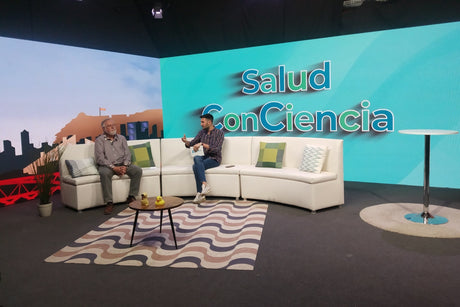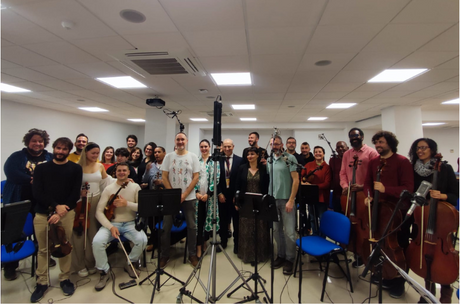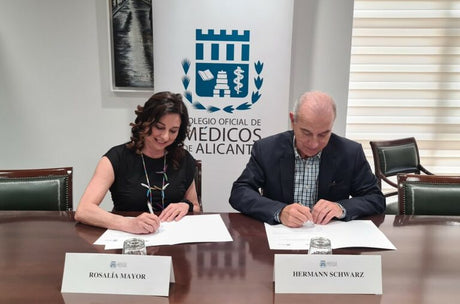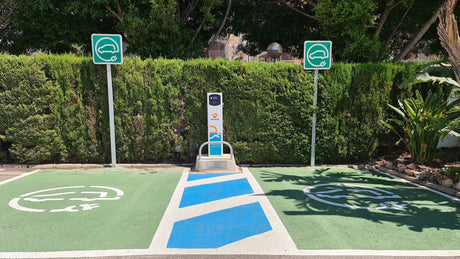Do young people have a low perception of the health risks of alcohol consumption, per se , or because they see that it is a normalized behavior in society? What is the point of arguing with a child when he or she comes home drunk? Is this the best time? How is it possible that 3 out of 4 young people have consumed alcohol in the last year if the sale and consumption among minors is prohibited in our country? These are just some of the questions for reflection, launched by Dr. Francisco Salvador Pascual Pastor, president of Socidrogalcohol, the Spanish Scientific Society for Studies on Alcohol, Alcoholism and other Drug Addictions; and president of the National Committee for the Prevention of Smoking (CNPT). A true eminence, specialist in drug addiction and other addictive disorders, who has visited the set of the program "La Explanada" to participate in the section "Salud ConCiencia", a television space promoted by the Official College of Physicians of Alicante, to inform and disseminate from scientific rigor.
Dr. Pascual has raised the alarm in the face of a “worrying reality. According to the National Drug Plan, in our country 3 out of 4 young people between 14 and 18 years old have consumed alcohol in the last year, but it has also been noted that there is beginning to be an intake among people aged 12 to 13. Girls more than boys, too.” If we talk about tobacco, practically 2 out of 3 young people do so. In addition, according to the data, cannabis consumption, which is decreasing in the general population, is nevertheless increasing among young people. And the danger is evident because these three substances are usually the gateway to the others.”
The president of Socidrogalcohol also explained what the term means Binge Drinking , At the same time, he highlighted the serious risks that this binge drinking poses for young people: “in a maximum of two hours, drinking more than 5 drinks for men and 4 for women will result in having more than 0.8 grams of alcohol per litre of blood, and that will mean having symptoms of alcohol poisoning, and in such young bodies, less tolerant to this substance, the possibility of having an alcohol coma is much higher.”
On the other hand, Dr. Pascual also tried to make friends aware of their role, which is fundamental “because sometimes they behave in a way that, without knowing it, can be very damaging. It is not the best measure to try to hide a drunkenness, so that it does not become known. This is not an appropriate measure, because instead of helping a friend, we may be complicating their life.” At the first sign of alcohol poisoning, the advice is always to call 112.

 My account
My account







